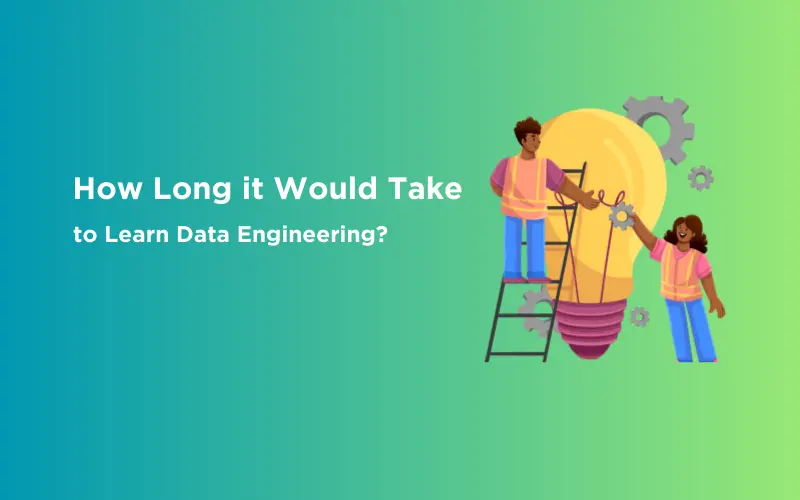
How Long it Would Take to Learn Data Engineering in 2025?
Dec 21, 2024 4 Min Read 6107 Views
(Last Updated)
Have you ever wondered how long it takes to get into the world of data engineering? How does one transition from an amateur to a proficient data engineer and how would it take to learn data engineering?
Embarking on the journey to learn data engineering is an exciting venture, one that comes with questions about time, effort, and the path ahead. In this article, we’ll explore the various possible timelines to learn data engineering from scratch. In the process, you will find the answer to the sought-out question, How long would it take to learn data engineering?
Table of contents
- Becoming a Data Engineer in 3 Months: 30-40 hours a week
- Month 1: Foundation and Basics
- Month 2: Tools and Technologies
- Month 3: Advanced Topics and Projects
- Becoming a Data Engineer in 6 Months: 15-20 hours a week
- Month 1-2: Foundational Concepts
- Month 3-4: Tools and Technologies
- Month 5-6: Advanced Topics and Projects
- Becoming a Data Engineer in 9 Months: 10-15 hours a week
- Month 1-2: Laying the Foundation
- Month 3-4: Core Concepts and Tools
- Month 5-6: Advanced Topics and Practice
- Month 7-8: Specialized Skills and Projects
- Month 9: Review, Practice, and Wrap-up
- Conclusion
- FAQ
- How long does it take to learn data engineering from scratch?
- What are the essential skills needed for a career in data engineering?
- What are the primary roles and responsibilities of a data engineer?
- Can I learn data engineering while working a full-time job?
- Can I transition from software engineering to data engineering?
- Is programming knowledge required for Data Engineering?
Becoming a Data Engineer in 3 Months: 30-40 hours a week

To learn data engineering in just 3 months and become one with a commitment of 30-40 hours a week is an ambitious goal, but it’s certainly possible with a well-structured plan and dedicated effort. Here’s a roadmap to guide you through the process:
Month 1: Foundation and Basics
- Week 1-2: Introduction to Data Engineering
- Familiarize yourself with the role of a data engineer, their responsibilities, and the tools they use.
- Learn about the data engineering ecosystem, including concepts like ETL (Extract, Transform, Load) processes and data pipelines.
- Familiarize yourself with the role of a data engineer, their responsibilities, and the tools they use.
- Week 3-4: Programming and Scripting
- Choose a programming language, preferably Python or Scala, and get comfortable with its syntax and concepts.
- Learn about data structures, algorithms, and how to manipulate data using libraries like Pandas (Python) or Spark (Scala).
- Choose a programming language, preferably Python or Scala, and get comfortable with its syntax and concepts.
- Week 5-6: Databases and SQL
- Understand different types of databases: relational (e.g., MySQL, PostgreSQL) and NoSQL (e.g., MongoDB, Cassandra).
- Learn SQL for data querying, manipulation, and basic database management.
- Understand different types of databases: relational (e.g., MySQL, PostgreSQL) and NoSQL (e.g., MongoDB, Cassandra).
Month 2: Tools and Technologies
- Week 7-8: Data Storage
- Dive deeper into data storage solutions such as HDFS (Hadoop Distributed File System) and cloud-based storage like Amazon S3.
- Learn about file formats like Parquet, Avro, and ORC commonly used in data engineering.
- Dive deeper into data storage solutions such as HDFS (Hadoop Distributed File System) and cloud-based storage like Amazon S3.
- Week 9-10: Data Processing Frameworks
- Learn about distributed data processing frameworks like Apache Spark. Focus on batch processing and understanding how Spark operates.
- Learn about distributed data processing frameworks like Apache Spark. Focus on batch processing and understanding how Spark operates.
- Week 11-12: Data Pipelines and ETL
- Study data pipeline architecture and tools like Apache Airflow, Luigi, or Prefect for orchestrating ETL tasks.
- Build simple ETL pipelines, transforming and loading data from one source to another.
- Study data pipeline architecture and tools like Apache Airflow, Luigi, or Prefect for orchestrating ETL tasks.
Month 3: Advanced Topics and Projects
- Week 13: Advanced SQL and Database Design
- Learn about advanced SQL topics like window functions, indexing, and optimizing queries.
- Explore database design principles for efficient data storage and retrieval.
- Learn about advanced SQL topics like window functions, indexing, and optimizing queries.
- Week 14-15: Cloud Services and Big Data
- Familiarize yourself with cloud platforms like AWS, GCP, or Azure and their data-related services.
- Learn about big data processing tools and services like Hadoop, Hive, and HBase.
- Familiarize yourself with cloud platforms like AWS, GCP, or Azure and their data-related services.
- Week 16: Real-world Project
- Apply your knowledge by working on a practical project. Create a complete data pipeline from data extraction to loading, utilizing the tools and techniques you’ve learned.
Remember, practical experience is crucial in data engineering. As you progress through the weeks, try to build mini-projects or work on real-world datasets to solidify your skills. Additionally, it is advisable to learn data engineer through GUVI’s Big Data and Cloud Analytics Course to get a structured and clear understanding of the subject.
Becoming a Data Engineer in 6 Months: 15-20 hours a week

Becoming a data engineer in 6 months while dedicating 15-20 hours a week requires a focused and efficient approach. Here’s a structured plan to help you achieve your goal:
Month 1-2: Foundational Concepts
- Week 1-2: Introduction to Data Engineering
- Understand the role of a data engineer and the key concepts of data pipelines, ETL processes, and data storage.
- Understand the role of a data engineer and the key concepts of data pipelines, ETL processes, and data storage.
- Week 3-4: Programming Fundamentals
- Choose a programming language (Python is recommended) and learn its basics.
- Focus on data manipulation, loops, conditionals, and functions.
- Choose a programming language (Python is recommended) and learn its basics.
- Week 5-6: Databases and SQL Basics
- Study relational databases, learn about database design, and practice SQL queries.
Month 3-4: Tools and Technologies
- Week 7-8: Data Storage and Formats
- Explore different types of data storage, including HDFS and cloud storage.
- Learn about common data formats like CSV, JSON, and Parquet.
- Explore different types of data storage, including HDFS and cloud storage.
- Week 9-10: Introduction to Data Processing
- Gain familiarity with batch processing concepts and tools like Apache Spark.
- Learn about transforming and cleaning data using Spark.
- Gain familiarity with batch processing concepts and tools like Apache Spark.
- Week 11-12: Building Data Pipelines
- Study ETL processes and how to build basic data pipelines.
- Explore tools like Apache NiFi for data ingestion.
- Study ETL processes and how to build basic data pipelines.
Month 5-6: Advanced Topics and Projects
- Week 13-14: Cloud Services and Big Data
- Learn about cloud platforms (AWS, GCP, Azure) and their data services.
- Gain an introduction to big data tools like Hadoop and Hive.
- Learn about cloud platforms (AWS, GCP, Azure) and their data services.
- Week 15-16: Data Pipeline Orchestration
- Study workflow management using tools like Apache Airflow.
- Build more complex data pipelines with multiple steps.
- Study workflow management using tools like Apache Airflow.
- Week 17-18: Data Modeling and Optimization
- Understand data modeling concepts and normalization.
- Learn about indexing, partitioning, and query optimization.
- Understand data modeling concepts and normalization.
- Week 19-20: Real-world Projects and Practice
- Work on practical projects that incorporate your learning.
- Build data pipelines, perform data transformations, and manage data workflows.
- Work on practical projects that incorporate your learning.
Throughout the journey:
- Focus on hands-on practice through projects, as they help solidify your skills.
- Practice time management and consistency to make the most of your limited hours.
Remember that becoming a proficient data engineer is a continuous process. After the initial 6 months, keep learning, experimenting, and adapting to new technologies to stay relevant in the field.
Becoming a Data Engineer in 9 Months: 10-15 hours a week
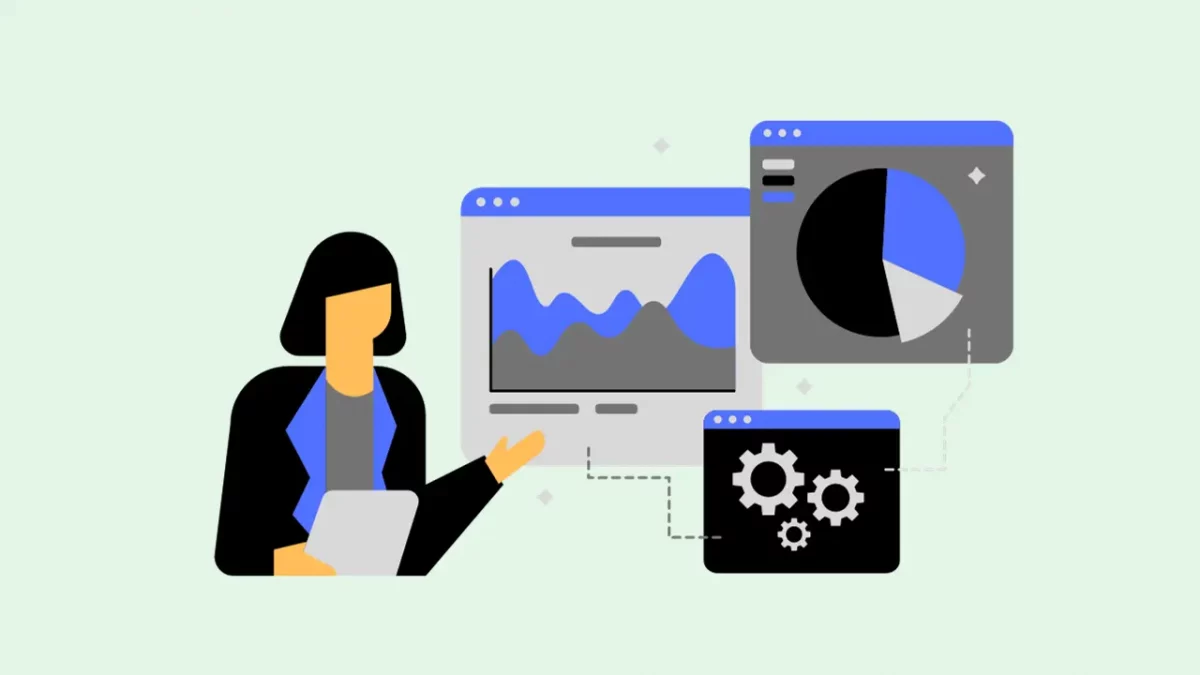
Becoming a data engineer in 9 months with a commitment of 10-15 hours a week is a feasible goal, but it requires a structured plan and consistent effort. Here’s a roadmap to help you achieve this:
Month 1-2: Laying the Foundation
- Week 1-2: Introduction to Data Engineering
- Understand the role of a data engineer, their responsibilities, and the importance of data pipelines.
- Explore common tools and technologies used in data engineering.
- Understand the role of a data engineer, their responsibilities, and the importance of data pipelines.
- Week 3-4: Programming Basics
- Choose a programming language (Python is recommended) and learn its fundamentals.
- Focus on variables, data types, loops, conditionals, and basic functions.
- Choose a programming language (Python is recommended) and learn its fundamentals.
- Week 5-6: Relational Databases and SQL
- Study relational databases, learn about normalization, and practice writing SQL queries.
- Understand database design principles.
- Study relational databases, learn about normalization, and practice writing SQL queries.
Month 3-4: Core Concepts and Tools
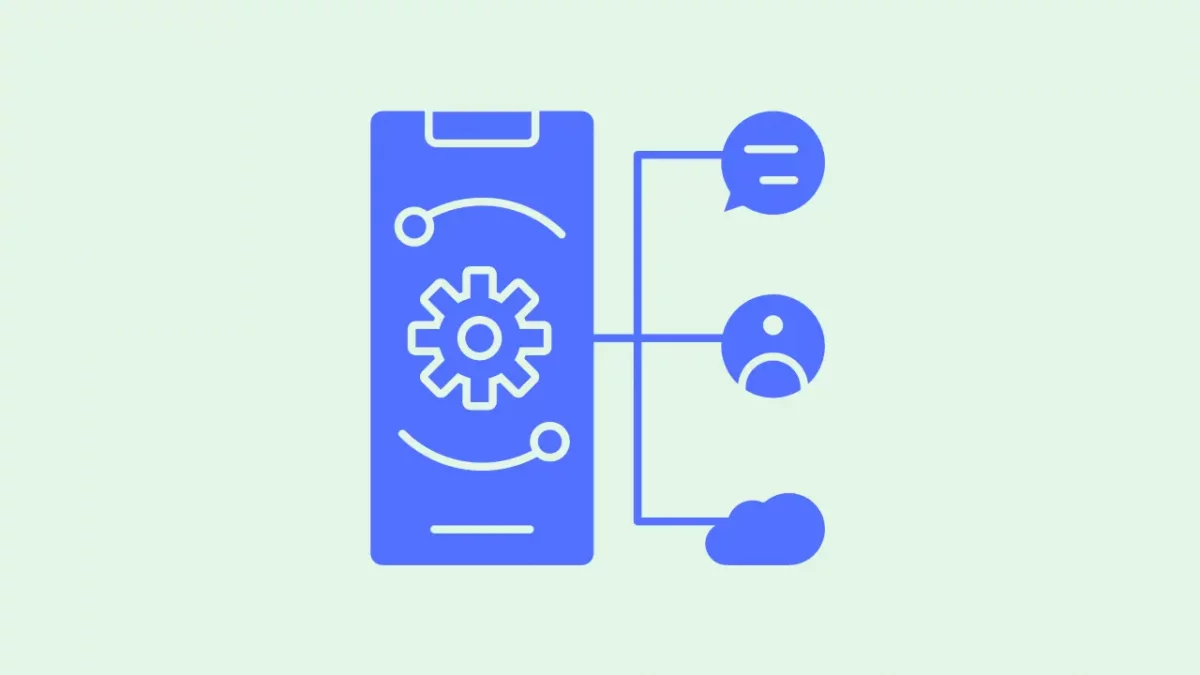
- Week 7-8: Data Storage and Formats
- Explore various data storage options, including local storage, HDFS, and cloud storage.
- Learn about different data formats like CSV, JSON, and Parquet.
- Explore various data storage options, including local storage, HDFS, and cloud storage.
- Week 9-10: Introduction to Data Processing
- Gain an understanding of batch processing concepts.
- Learn about Apache Spark and how it’s used for data processing.
- Gain an understanding of batch processing concepts.
- Week 11-12: Building Data Pipelines
- Study ETL processes and data pipeline development.
- Begin creating simple data pipelines using tools like Apache NiFi or custom scripts.
- Study ETL processes and data pipeline development.
Month 5-6: Advanced Topics and Practice
- Week 13-14: Cloud Services and Big Data
- Familiarize yourself with cloud platforms (AWS, GCP, Azure) and their data services.
- Learn about big data tools like Hadoop, Hive, and Amazon Redshift.
- Familiarize yourself with cloud platforms (AWS, GCP, Azure) and their data services.
- Week 15-16: Data Pipeline Orchestration
- Explore workflow management tools like Apache Airflow.
- Build more complex data pipelines and integrate workflow orchestration.
- Explore workflow management tools like Apache Airflow.
Month 7-8: Specialized Skills and Projects
- Week 17-18: Data Modeling and Optimization
- Dive deeper into data modeling techniques, indexing, and query optimization.
- Understand concepts like partitioning and denormalization.
- Dive deeper into data modeling techniques, indexing, and query optimization.
- Week 19-20: Real-world Projects and Skill Refinement
- Focus on practical projects that mimic real-world scenarios.
- Practice refining and optimizing data pipelines.
- Focus on practical projects that mimic real-world scenarios.
Month 9: Review, Practice, and Wrap-up

- Week 21-22: Review and Skill Enhancement
- Review all the concepts you’ve learned and identify areas that need reinforcement.
- Focus on any specific areas you want to deepen your knowledge in.
- Review all the concepts you’ve learned and identify areas that need reinforcement.
- Week 23-24: Final Projects and Skill Demonstration
- Undertake a challenging project that showcases your data engineering skills.
- Prepare to discuss your projects and skills in interviews or networking situations.
- Undertake a challenging project that showcases your data engineering skills.
Throughout the 9 months, continuously practice, work on projects, and stay updated with industry trends. Utilize online resources, courses, tutorials, and online communities to supplement your learning. Remember that becoming a data engineer is a gradual process, and consistent effort over time will yield rewarding results.
Kickstart your career by enrolling in Big Data and Cloud Analytics Course where you will master technologies like data cleaning, data visualization, Infrastructure as code, database, shell script, orchestration, and cloud services, and build interesting real-life cloud computing projects.
Conclusion
In conclusion, the journey to mastering data engineering is as diverse as the data itself. While there’s no fixed timeline that fits everyone, it’s evident that the time required to learn data engineering depends on various factors such as prior experience, dedication, available hours per week, and the depth of understanding desired.
For those willing to commit substantial time – whether it’s a few intense months or a more gradual year-long endeavor – the path involves mastering programming languages, databases, data processing frameworks, and orchestration tools.
Ultimately, the key lies in maintaining a curious mindset, staying updated on industry trends, and continually honing skills through practice and real-world projects. The journey may vary, but the destination of becoming a proficient data engineer is undeniably achievable with dedication and persistent effort.
FAQ
How long does it take to learn data engineering from scratch?
The time it takes to learn data engineering varies depending on factors like prior experience, available time commitment, and learning pace. It could take anywhere from several months to a year to become proficient.
What are the essential skills needed for a career in data engineering?
Key skills include proficiency in programming (Python, Scala), database management, ETL processes, data warehousing, cloud platforms (AWS, GCP, Azure), and data pipeline orchestration tools (e.g., Apache Airflow).
What are the primary roles and responsibilities of a data engineer?
Data engineers design, build, and maintain data pipelines, ensuring data is collected, transformed, and stored effectively. They work with various teams to ensure data availability, quality, and accessibility.
Can I learn data engineering while working a full-time job?
Yes, many people learn data engineering while maintaining a full-time job. It might take longer, but by dedicating consistent time, even a few hours a week, you can make steady progress.
Can I transition from software engineering to data engineering?
Yes, many skills from software engineering are transferable to data engineering. You might need to learn database management, data processing frameworks, and other relevant skills.
Is programming knowledge required for Data Engineering?
Yes, programming skills are essential for data engineering. Common languages include SQL, Python, Java, and Scala, which are used for data processing, ETL, and scripting.















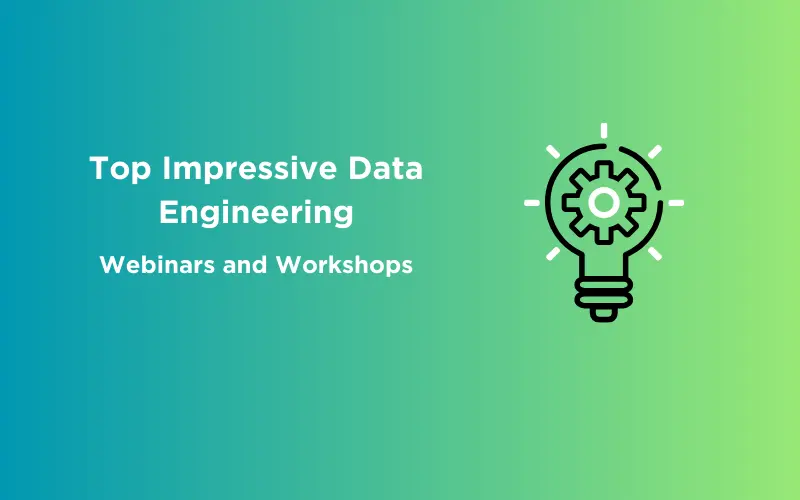
![Best Practices for Data Quality Assurance in Data Engineering [2025] 8 Feature Image - Best Practices for Data Quality Assurance in Data Engineering](https://www.guvi.in/blog/wp-content/uploads/2024/05/Best-Practices-for-Data-Quality-Assurance-in-Data-Engineering.webp)

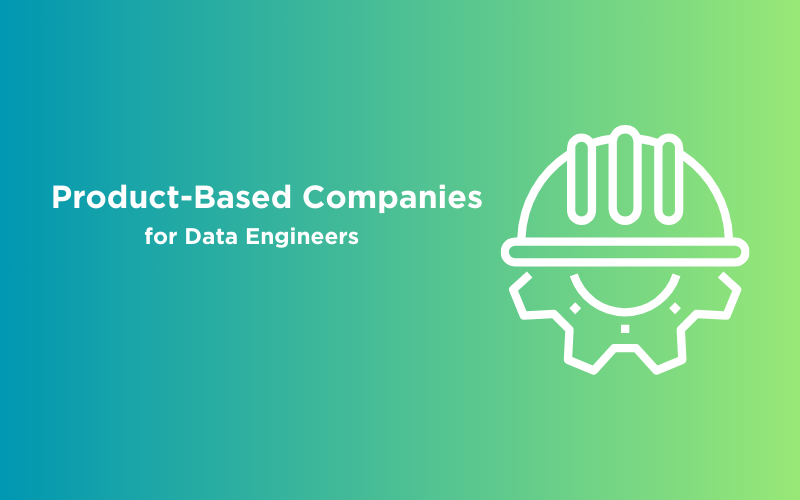
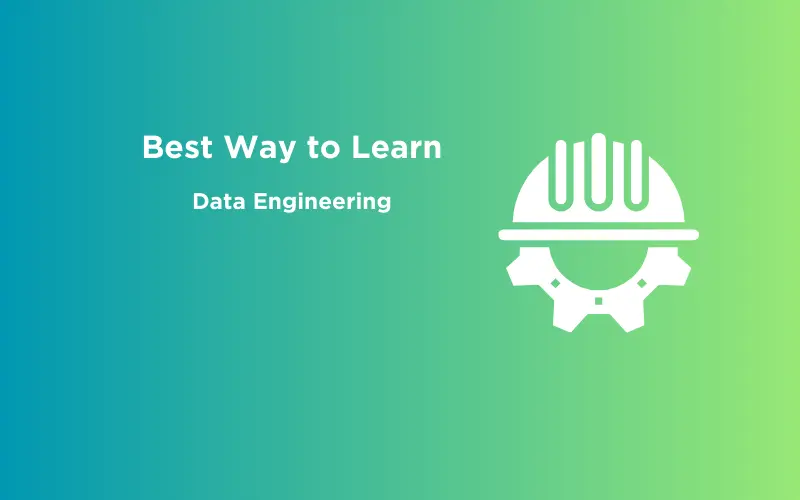
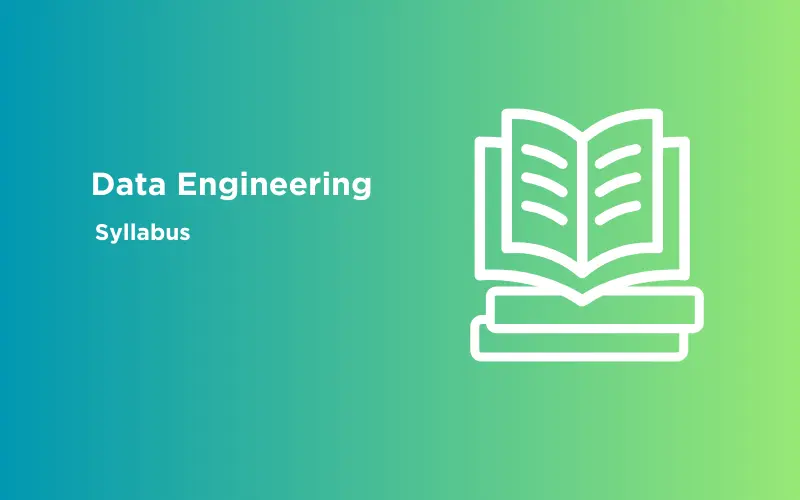
![AWS Data Engineer: Comprehensive Guide to Your New Career [2025] 13 Feature Image 1 2](https://www.guvi.in/blog/wp-content/uploads/2024/06/Feature-Image-1-2.png)
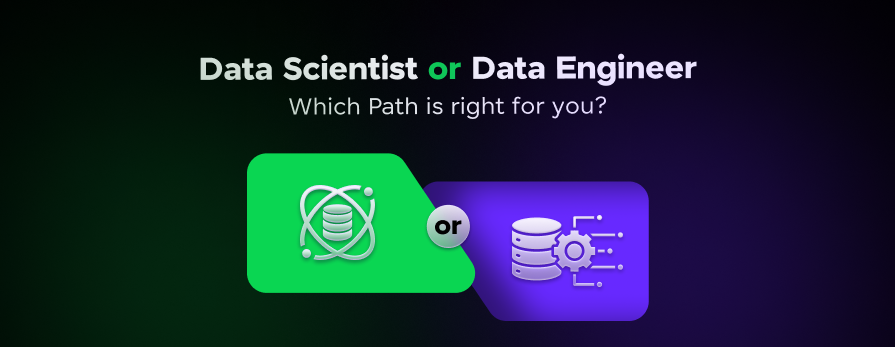
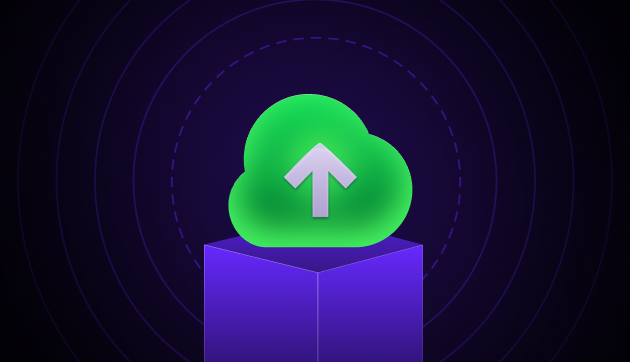
Did you enjoy this article?